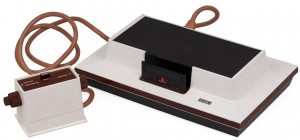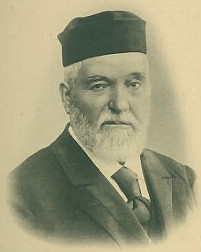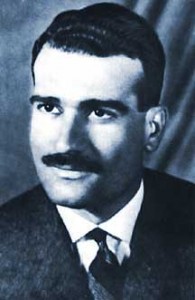The Father of Video Game Consoles
If any one person can be credited with sparking the video game industry, it is Ralph Baer. Born in Germany in 1922, Baer was expelled from school at age 11 because he was Jewish. Fearing violent anti-Semitism, the Baer family fled to America before the onset of the Holocaust. Instead of going to school, Ralph worked in a factory for 12 dollars a week, but made sure to learn on his own. During World War II he served as an intelligence officer based in London, stationed in France. After returning home Baer was among only a handful of people to earn a Bachelor of Science in television engineering, and worked for several electronics companies (including IBM) before joining Sanders Associates, a defense contractor which builds electronics for the military. It was there that Ralph Baer began developing a gaming system in 1966. The prototype was complete by 1968, and in 1972 was released by Magnavox as the first ever home video game console, known as the Odyssey.
Shortly after, Baer also developed the first peripheral device to a video game console, the famous ‘light gun’. This gun technology has been used in some of the most popular video games ever since. Today, video games make up an incredible $25 billlion industry, with nearly 70% of all households owning consoles. Baer continued to develop electronic games (he invented the popular handheld memory game Simon) and home consoles until retiring in 1987. He was recently inducted into the National Inventors Hall of Fame, and has received, among many other awards, the National Medal of Technology for his “groundbreaking and pioneering creation, development and commercialization of interactive video games.”
Update: Sadly, Ralph Baer passed away on December 6, 2014.
Words of the Week
Trying to be happy by accumulating possessions is like trying to satisfy hunger by taping sandwiches all over your body.
– George Carlin




